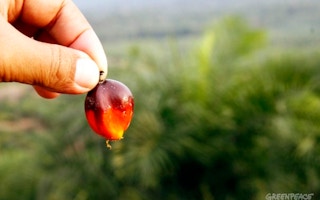It has been three years since Indonesia’s biggest palm oil producer, Golden Agri Resources, committed to their Forest Conservation Policy. Since then the company, with help of The Forest Trust and Greenpeace, developed a new approach to protect forests in its concessions, while maintaining its position as a viable plantation company.
This commitment to No Deforestation has been recognized. For instance, just last month one of the biggest Norwegian pension funds, Storebrand, decided to pull out of all palm oil companies, except GAR, on the basis of the company’s sustainability commitments.
Companies like Unilever, Nestle, Neste Oil, L’Oreal and Mondelez have also committed to buying only from producers that protect forests in their estates. And very recently the world’s biggest trader of palm oil, Wilmar International, announced that in the coming two years it will ensure that it will only trade palm oil produced without deforestation, peat land clearance or exploitation.
These are all strong indicators that something is changing in the palm oil industry, and that finally the industry can move away from the bad reputation fueled by decades of forest destruction.
What is concerning though is the reaction from the rest of the industry. While Indonesian producers stay quiet and do not express support for the progress shown by GAR and Wilmar, the Malaysian industry is actively pushing back. It claims that Wilmar’s new commitment will undermine the industry and the potential for the country to exploit its national resources.
We are seeing a transformation in the palm oil industry. This would be a perfect moment for other Indonesian producers to join GAR’s initiative and help Indonesia become the leading nation in responsible palm oil production.
The Indonesian industry should not be silenced or influenced by groups that would rather continue the business-as-usual model of irresponsible palm oil. Instead, it should be a model for responsible palm oil production — a model that is gaining global acceptance.
Wirendro Sumargo is a forest campaigner at Greenpeace Southeast Asia. This post originally appeared in The Jakarta Globe.








